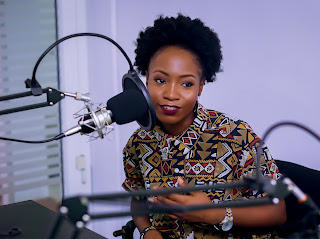Celebrities are flooding into podcasting, smelling money, renewed fame, and a resurgence of relevance. Most of the celebrities who have found a voice in podcasting are not top-shelf stars like Leonardo DiCaprio or Jennifer Lawrence. But that doesn't mean that they won't be successful or skilled at podcasting.
One key difference between podcasting and the visual media is summarized by Adam Carolla, whose eponymous podcast began in 2009. In a recent Entertainment Weekly magazine article about celebrity podcasts, Carolla hit the mark with "It's hard to get by on your looks when you're in podcasting."
Carolla's words have rung true for some social media influencers who have tried podcasting only to discover that posing and smiling are their strong suits, not talking in a compelling way for a few hours a week.
The question is not whether celebrities can excel at podcasting. We know from Dax Shepard (and his co-host Monica Padman), Jenna Fischer and Angela Kinsey, Carolla, and Rob Lowe that celebrities can attract listeners and keep them returning for more episodes with compelling audio.
The question is: Is the influx of celebrity podcasts good or bad for podcasts listeners?
Based on the rating success for celebrity podcasts, there's no question that listeners enjoy listening to celebrities. For example, the SmartLess podcast with Will Arnett, Jason Bateman, and Sean Hayes have built an impressive audience in only a year. Katie Couric was an early adopter of podcasts at a time when pundits claimed a foray into podcasting signaled a lull in her career.
That's not the conventional wisdom anymore. Stars such as Dakota Johnson, Reba McEntire, Ellen Pompeo from Grey's Anatomy, Seth Rogen, and John Stamos now host or co-host podcasts. What's luring these celebrities to the podcast microphone and soundproof room is a bag of money thrown at celebrities to develop a podcast for a specific podcast network.
Spotify and SiriusXM -- which owns Stitcher -- have been particularly aggressive with signing notable celebrities. What's tripped up some celebrities is their mistaken sense that hosting a podcast is like being a guest on a late-night talk show like Fallon, Kimmel or Colbert, where they gab for a few minutes and the audience eats it up.
Hosting a podcast means streaming constant a monologue or dialogue, and that may be tough for some celebrities, often sheltered from too much exposure to media. To be successful at podcasting, celebrities must be skilled at interviewing and find ways to show interest in someone other than themselves. That's not always easy for a group of people for which ego and narcissism are necessary tools of the trade.
"The smart celebrities find a bright and witty co-host to accompany them," says podcast consultant George Witt. "The Dax Shepard podcast is successful, in large part, due to co-host Monica Padman."
So there are upsides to celebrity podcasts for listeners? But what are real or potential downsides?
First, celebrities tend to draw all the oxygen out of the podcast bubble. Smart and sharp indie podcasts tend to get cast aside. After all, why listen to a podcast with two nobodies co-hosting when a listener can get an hour from a familiar celebrity. It's a known quantity. Much like the security blanket feeling movie studios have about sequels.
Second, celebrities attract high-dollar contracts from large podcast networks. In a zero-sum investment game, podcasts curtail investment in lesser-known podcast hosts to funnel money to celebrities.
For example, coming in 2022, Vox is presenting Even Better Conversations, a limited podcast series hosted by Even Better editor Rachel Wilkerson Miller, bringing diverse voices together for essential conversations about how to live life to the fullest.
When asked: What kind of stories and conversations are you most excited to bring to listeners as part of the Even Better Conversations series?
Miller responded, "I get to talk to so many incredible experts when I'm working on stories; I interview therapists and epidemiologists and researchers, and every single time I come away from a conversation absolutely bursting with new information, feeling so much smarter and more prepared to take on a problem than I did before. I'm also excited to bring audience-submitted questions directly to the experts in this series."
With so many celebrity podcasts, will there still be room in the podcast universe for smart and unconventional voices like Rachel Wilkerson Miller?
So far, the celebrities that have planted their flag in podcasting possess the intellectual depth and conversational skill to pull off "ear worthy" podcasts.
But what happens when the next group of celebrities, lured by the success of the first group, invades podcasting without the requisite skills to pull off a podcast?
Think a Jerry Springer type on a podcast. Wendy Williams? The Kardashians podcast?
The imminent danger of "celebrities" podcasting, however, is not that the shows will not maintain a basic level of audio and conversational quality, but that podcast networks focus almost exclusively on such shows and ignore the Rachel Wilkerson Millers, whose shows go beyond the pitter-patter of celebrity narcissism.
As the Ancient Greeks said, "everything in moderation."
Podcasting already suffers from too many true-crime podcasts struggling to become the next breakout hit like Serial.
What podcasting does not need is celebrities invading its audio format, trying to be the next Joe Rogan. One is quite enough.
The danger of celebrity podcasting is that podcasts begin to sound too much like talk radio or, worse yet, the inane and innocuous blathering on TV daytime talk shows.

Comments
Post a Comment
Thank You for your input and feedback. If you requested a response, we will do so as soon as possible.